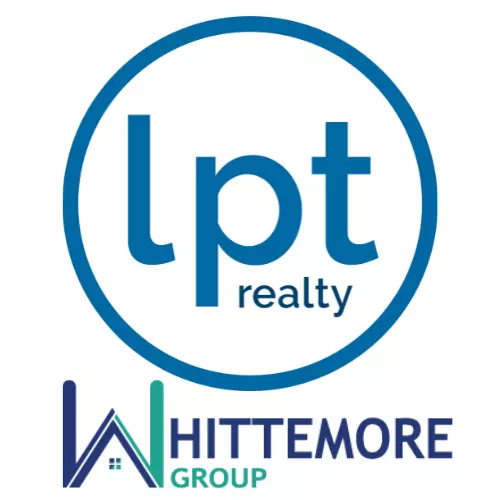Pros and Cons of Buying and Renting
Pros and Cons of Buying and Renting
Hey everybody! It’s Tim Whittemore here with the Whittemore group at exp Realty. We are your local experts and your enthusiastic professionals. Today, we're going to talk about either owning a home or renting a home and which one's best for you. And, I'm going to tell you right off the bat that it's going to be situational for you. Whatever is best for you is the best way that I'm going to tell you to go forward. However, there are some advantages and disadvantages to both, and being educated on both of those will help you get to the next decision moving forward.
So, I'm just going to jump right into some of the advantages of actually purchasing a home. Well, because we are resale agents here, of course, we're going to jump right into that.
PROS
1. Build Equity and Credit
So, some of the advantages that you do have is you may be able to build equity and your credit over time. Historically, the US housing market has been going up over time. Now, there have been some corrections. But still, that still been going up. So, if you're going to hold onto a house for at least two years or more, this is probably a better investment for you. Of course, talk to your local real estate agent to ensure that, that's the market where we see it going. But typically, if you're going to be there for at least that amount of time, you should gain enough equity to where you might be able to get some cashback. Now building your credit, having a house definitely is going to put your credits one of the big focal points that you'll see if you read the forums online of what can help you build your credit. So, owning a house, definitely going to help you out there.
2. You Don't Have a Landlord
Another great thing is you don't have a landlord. How awesome is that? You don't have to report to anybody. You don't have somebody checking up on you. Which you want to do for that house, is what you want to do.
3. More Stability
The next nice thing is more stability. So, you know where you're going to stay. You know what's cool is that the kids are going to be going to. You know how much you're paying for principal and interest. The only things that may change will be, perhaps your insurance and your taxes over time. However, there's not much of we could do about taxes, but yes, you can pick different insurance providers over the time. So, you are in control of that and you have this ability and you don't have to worry about the landlord trying to sell his house and having to kick that out, and then you're going to have to find a whole different thing and it could be a mess. So, that's one nice thing.
4. Tax Benefits
You might have some good tax benefits for that depending on the state and the condition that the market is in. Definitely, talk to your tax professional, CPA, or whomever to see what you can do for that.
5. Improve and Upgrade Anyway You Want
And, one of the last advantages at least in my shortlist of advantages here for purchasing a home, is you can improve and upgrade to whatever taste you want. So, if you want to take the half bath downstairs and turn it into a full bath, you totally can. If you want to go through and paint it different colors, you know, you want to have a Fireman's pole in the beginning, in the middle of the living room, you can do whatever you want, it's up to you. So, that's one thing. I bet the landlord probably would want that, so you can do whatever you want with your home.
CONS
1. Down Payments
Some disadvantages of course, is that, for a conventional loan or maybe an FHA loan, it's going to require substantial amount of money for down payment. Now, if you are a veteran, a military veteran, you can have a VA loan. Certain places have rule housing, where you don't have to put any money down. Of course, you can talk to your lending professional or real estate professional to see which one applies. But, know that that could be something. And yes, there's a lot of paperwork and there's a lot of rigmarole that you'll have to go through (rigmarole, that's a good word) to end up get purchasing a house. However, just talk to your a real estate professional. They'll be able to walk you through everything prior to getting in and give you a really good idea of what to anticipate. Or, you can watch more of my videos and they'll tell you everything you need to know.
2. Could Lose Equity
Other possible disadvantage is, if the market does decline, you could possibly lose some equity in that home. And then, either have to rent it out when you leave, or may have to bring some money to closing. Now, this is usually over the short term and that's a risk that you run into with really purchasing anything that you plan on selling later. But that is a possibility that you'll have to consider when purchasing a home.
3. Extra Expenses
There are extra expenses beyond mortgage payments. Your normal stuff that you're going to pay anyway, which is your, you know, your trash gas, those sort of things. Know that regular upkeep for the house is going to be on you. So, if the AC goes out, you're going to have to pay for that. If you don't have a home warranty, that's something that's going to come straight out of pocket. So, make sure that you have cash reserves for those sort of things. The roof is leaking, you know, things of that nature.
4. Tough To Find a Home
And, if you have rising home prices and low inventory like we've had over the past three years since this video, you'll know that it's going to be tough to find a home. However, there are different ways that you can go through and different advantages to get the stuff that you're looking for. And of course, talk to you real estate professional, will be able to get you through the market, to get the best price and the best house for your money. And of course, the other disadvantage too is if you, if nothing of course is going to be perfect when you move in. Just know that you'll be responsible for the remodeling and of course, the repairs have mentioned before.
So, let's talk about renting. Renting can be a great opportunity for you. If you have a job that you could just move to at any point, if you're going to be at a place for a year or less, this is usually some good indications that you should probably rent for a while. If you're moving into an area and you don't know if you're going to be staying there for that long, again, this might be a great idea to get in there, rent for a little while, figure out what's going on. If you can rent for six months or less or something of that nature, fantastic. Get in there and get a feel for it and then move on to purchasing a home once you know that you're going to be there for a while. So, let's go over some of the advantages.
PROS
1. Fewer Upfront Costs and Paperwork
First things first is you're going to have fewer upfront costs and paperwork. Which is good, you know. But, you won't have to worry about so much of a down payment. You will have security deposits, the first month's rent, those sort of things. And, it's usually just going through the lease and some background checks and credit checks.
2. Freedom To Move
Your next one is you, as I mentioned before the freedom to move and be mobile. So, something does come up, you can be able to bounce out of that. Usually, if the landlord is good with it, you can get out of that lease a little bit early if you needed to. Or minimal cost versus having to sell a home, right?
3. You're Not Responsible For Maintenance
You're not going to be responsible for maintenance and repairs as I said earlier. That's the landlord's job. There's usually an indication in your lease to say, hey, if it's under whatever amount will say, $100, that the landlord will be responsible for going ahead and fixing those items.
4. No Need To Worry About Home Values
Don't have to worry about falling home values because you don't own the home. That's going to be a seller's issue. So, the only thing that you're going to have to worry about is, the rent moving up or down. Know that the market for rentals continually seems to go up. So, most of the time, when you go to renew the lease, they may just go ahead and tack another $25-$50 on there that you're going to be paying an extra month, and they have every right to do that. However, you're not subject to the housing market.
5. You Can Build Credit
And, you can build credit. Now, if you're going through if you're not just going from owner to owners of the renter and you're going to Rental Management Company. Most of those do report those rental payments to the different credit bureaus which can help build your credit over time, which is nice.
CONS
1. Landlord Can Raise Rent or Sell
Some of the disadvantages. If some of these, I've already mentioned before, the landlord can raise rent and they could sell the property. It's usually in there. So, if during your lease, they go, hey, I'm about to sell this. You need, you have about two months and you got to get the heck out of here. You got to get up and go and go find a new rental. Now, if the rental market is as hot as housing market is like it is here in the State of Florida. That could be a big issue that you got to get up move the family, got to worry about schools and all these other different things with kids, that can really be hard.
2. Options Can Be Limited
Also, know that choices can be limiting, depending on your vacancies. As I mentioned before the vacancy rates here are very very low. So, if anything that's out there, that's good enough that you want to rent and move really quickly. So, you got to stay on top of that, and it's tough to find a rental.
3. You Might Have To Move Multiple Times
You might have to move multiple times because somebody selling their house, the rent went up and you can't afford it anymore. A slew of different things could happen why you can't rent anymore, and well, there you go.
4. You Don't Build Equity And No Tax Benefits
Also, you don't build equity when you're renting. You're just paying for somebody else's equity and you don't have any tax benefits. Granted you got a place to stay but you're not building anything extra beyond that.
So, those are your advantages and disadvantages in purchasing a home or renting. Now, you can say that based on your situation, one might be advantageous versus the other. But if you have any other questions, make sure to reach out to my team or your real estate professional, or your rental management company to see what they have to say, when it could be the best situation for you.
Alright, I hope this was useful. If you have anything else that you have questions on or you want to add anything, feel free to call/text us at 850.320.7757 or email us at Admin@WhittemoreGroupRE.com
Categories
Recent Posts










![<!-- begin Widget Tracker Code --> (function(w,i,d,g,e,t){w["WidgetTrackerObject"]=g;(w[g]=w[g]||function() {(w[g].q=w[g].q||[]).push(arguments);}),(w[g].ds=1*new Date());(e="script"), (t=d.createElement(e)),(e=d.getElementsByTagName(e)[0]);t.async=1;t.src=i; e.parentNode.insertBefore(t,e);}) (window,"https://widgetbe.com/agent",document,"widgetTracker"); window.widgetTracker("create", "WT-JTWWXHJC"); window.widgetTracker("send", "pageview"); <!-- end Widget Tracker Code -->](https://cdn.chime.me/image/fs/cmsbuild/2022820/12/h200_original_12b23b22-4a2a-4f96-8df9-274c8346f371-png.webp)